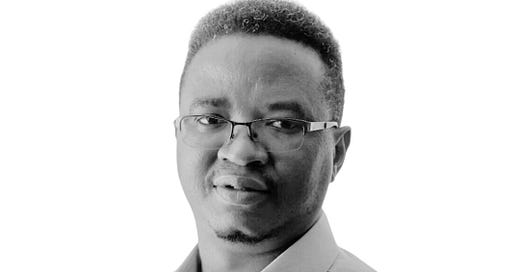Welcome to “Global Witness, Globally Reimagined.” You get a glimpse here of the kind of work that I do both at Church Mission Society and Missio Africanus where I help students of all levels (from unaccredited courses to PhD) explore the theological (and missiological) implications of the rise of World Christianity. In the newsletter, I focus on the subject of global witness in the context of the twenty-first century. Every Thursday, I share a thought that has spoken to me in the week, one or two resources that I trust will be helpful to you, and three exciting quotes about mission to give you something to think about as you go through your day. I pray one of these will energise you.
NB: Please note that I will soon start tailoring most of my content towards paid subscribers. There will still be occasional posts open to everyone, but most will be for paid subscribers. If you appreciate the newsletter and are able to pay for a subscription, please consider doing so.
1. Thought I Can’t Shake Off
I spent last week in Halle, Germany. I attended a conference exploring Christian witness in a secular city. My understanding of secularism was once again stretched beyond anything I thought possible. I have written before about how the secularism I saw in St Gallen (Switzerland) shocked me and permanently shifted my worldview. Compared to Halle, St Gallen felt like it was having a Christian revival. Halle’s secularisation (and that of the wider East German world) is frightening. But I was also encouraged to see a church adapting to this new reality and finding creative ways to be the good news to the people around them. If the church of the future is like the church I saw in Halle, there is hope for us all.
But something else happened in Halle. In the build-up to the trip, I was excited to visit the University of Halle, as I learned in mission school, where Gustav Warneck held the first Chair of Missiology in the world between 1896 and 1908. I felt like I was going to the shrine where it all started. (Of course, the University of Halle was home to Friedrich Schleiermacher and August Francke, and I had to take advantage to see their legacies as well). But it was Warnack who fascinated me.
During my entire week in Halle, Warneck was mentioned only once — in a side conversation. I visited the Francke Foundation and took pictures of statues of Francke and Schleiermacher but found very little of Warneck. Maybe I did not look hard enough.
Overall, Warneck was thoroughly irrelevant to the missional conversation we were having. This saddened me a little. I went to the shrine and found it dismantled—something I could not recognise stood where it once was.
Later, I came to understand from close quarters that “missiology” is a thing of the past in Germany. “Nowadays, we speak of intercultural theology,” they said. This made sense to me, seeing how they feel about the colonial legacy of most of European missionary work in the world. But it also made me wonder what, in this new term, are we talking about? Are the two terms — missiology and intercultural theology — discussing the same thing? What are the implications for the wider work of bearing witness for Christ in the 21st century?
» Addendum: I have spoken to many African scholars who argue that, “Now that we have caught on with mission, the Westerners want us to change language and we will not. Mission will always be mission to us.” And I do not know how to respond to them.
2. Resources I am Enjoying
Video: Brian Lam: The Call to Cross-Cultural Missions Locally and Globally
In this presentation at the Dallas Theological Seminary, Dr Brian Lam explores the theme of cross-cultural mission in relation to the task of the local church in the context of the global village that bringing people of different cultures together as next-door neighbours. While highlighting some hindrances to cross-cultural mission, Lam emphasises the challenges of prejudices and biases that often get in the way of loving relationships with others and the task of making disciples of all nations—even when these people are as close to us as our next-door neighbours. Ultimately, Lam notes that it is the desire and work of the Spirit to bring everyone into the family of God. As such, we must allow the Spirit of God to move us however he chooses and to whomever, as we seek to continually and effectively make disciples of all nations.
3. Quotes I am Pondering
No movement can merit the title ‘church’ unless it is a missionary community. — J.N.K Mugambi
Mission is not a state; it is a process and an ongoing task. We, too, are not Christians but continually become Christians. Therefore, discipling is an ongoing task if Christians have to love and live the life Christ calls us to. — Philomena Njeri Nwaura
[The] conception of mission seldom includes the necessary aspects of pastoral care and the deepening of the faith of those who identify themselves as Christians. But Christian mission is not just about gaining converts; it is also about making sure that the converts become mature disciples and servants of Christ. — Tite Tiénou
I pray that you will be faithful to the work God has for you this week.




I like the question you are asking. For me: 'missiology' refers to trying to understand how the mission of the church (both local and cross cultural) has been done in the past, is being done now and might be done in the future and the 'why of it'. Intercultural theology is hopefully what one is doing while taking part in God's mission. Thank you for your interesting articles.